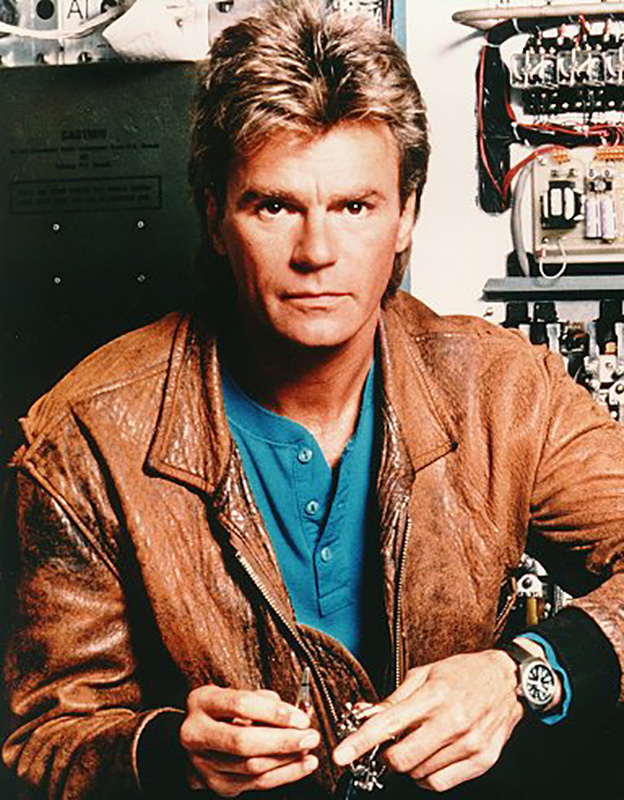Students in ‘MacGyver’ workshop will use everyday tools to solve over-the-top problems

Richard Dean Anderson as Angus MacGyver, the resourceful secret agent who used scientific knowledge, a Swiss Army knife and a paperclip to defeat evildoers.
The only things missing are the mullets and the duct tape.
Ayse Turak is looking to 1980s’ TV action hero ‘MacGyver’ for inspiration in the lab.
Turak, an engineering physics assistant professor, plans to create a series of workshops in 2016 where undergraduate summer research students are put into over-the-top scenarios and asked to ‘MacGyver’ their way to a solution.
Just like secret agent Angus MacGyver, engineering students will need to put their scientific know-how to the test by using everyday tools to get out of (fake) scenarios while the clock counts down: Everything from fixing a broken lock on an electronic door to defusing a bomb by writing a simple computer code to neutralizing a poison in a solution released by an evil villain.
The life-or-death scenarios may be fabricated but the expectations for the program, for which Turak recently earned a Petro-Canada – McMaster University Young Innovator Award, are real.
The $25,000 grant, along with additional support from the Faculty of Engineering, will ensure Turak and her student secret agents will have the means of carrying out these lab ‘missions’.
“The concept is to connect with that idea [MacGyvering] to help them develop open-ended problem-solving skills, as we give them guidance on how to solve the problems, but in the end, it’s up to them to solve it,” Turak says.
Many undergraduates are worried about working in labs, Turak says, and a program like this could help build a comfort level.
“On the flip side, professors are very reluctant to take in undergrads because they have to teach them a lot of things before they can seriously impact research,” Turak says. “So the idea behind the proposal is to try to find a way that is engaging for the students and practical for the professors.”
The pilot project will train 20 students with the goal to expand to all undergraduate researchers in engineering. Graduate students will organize the sessions and train undergraduates who go through the program to teach it in future.

